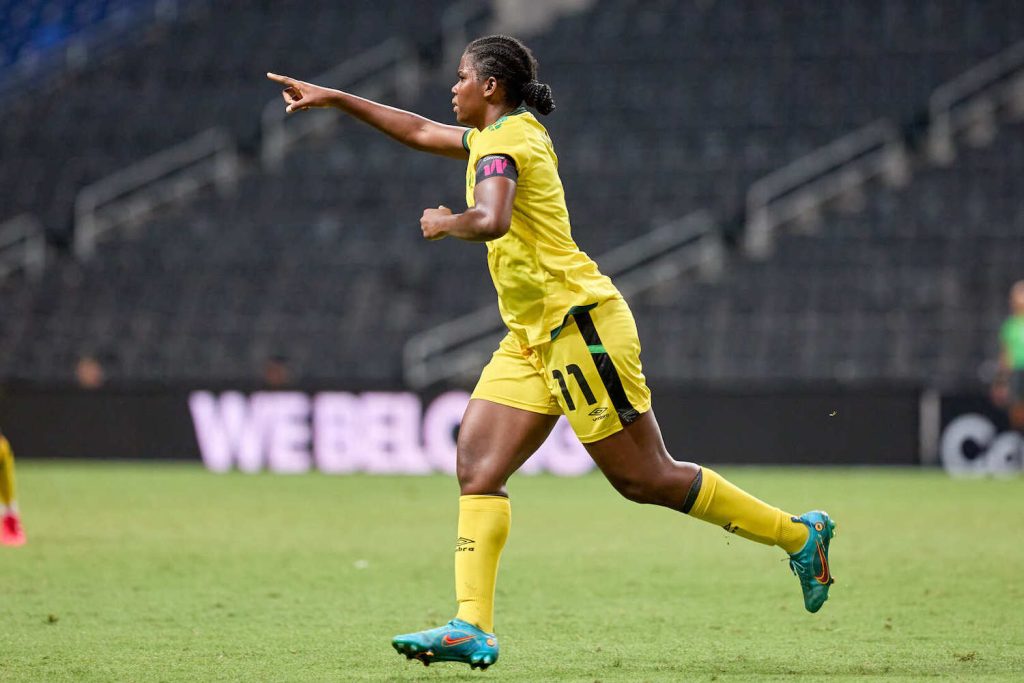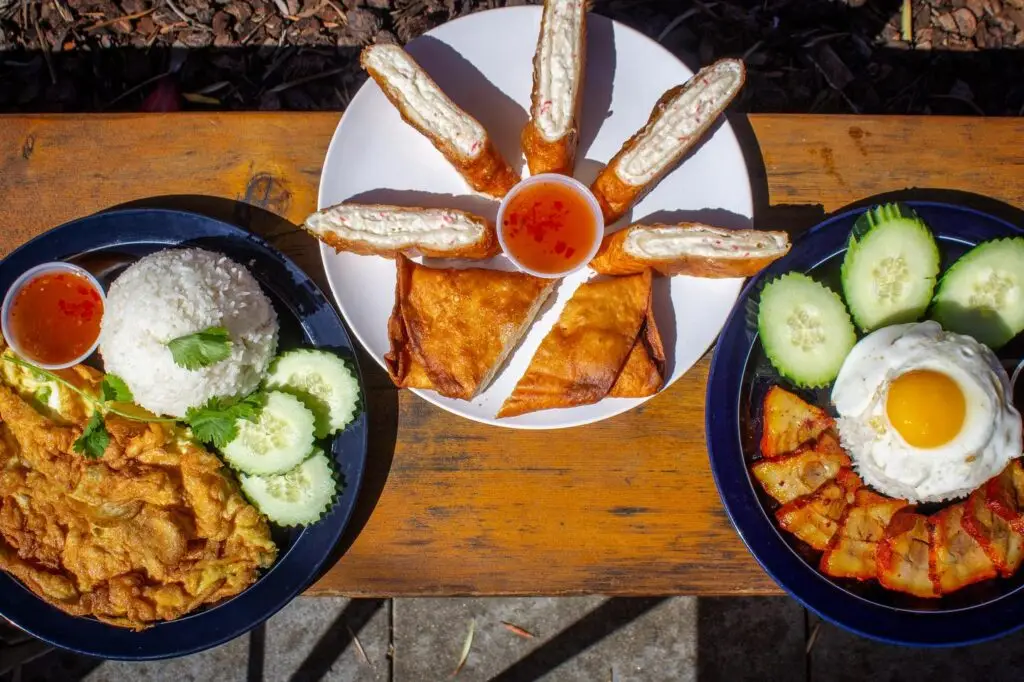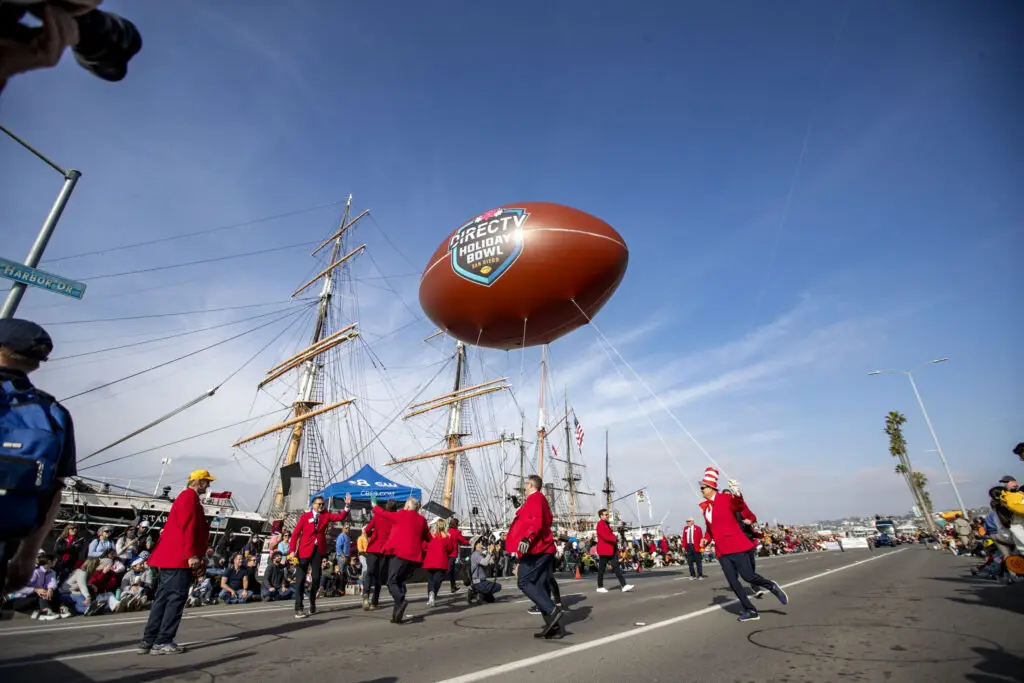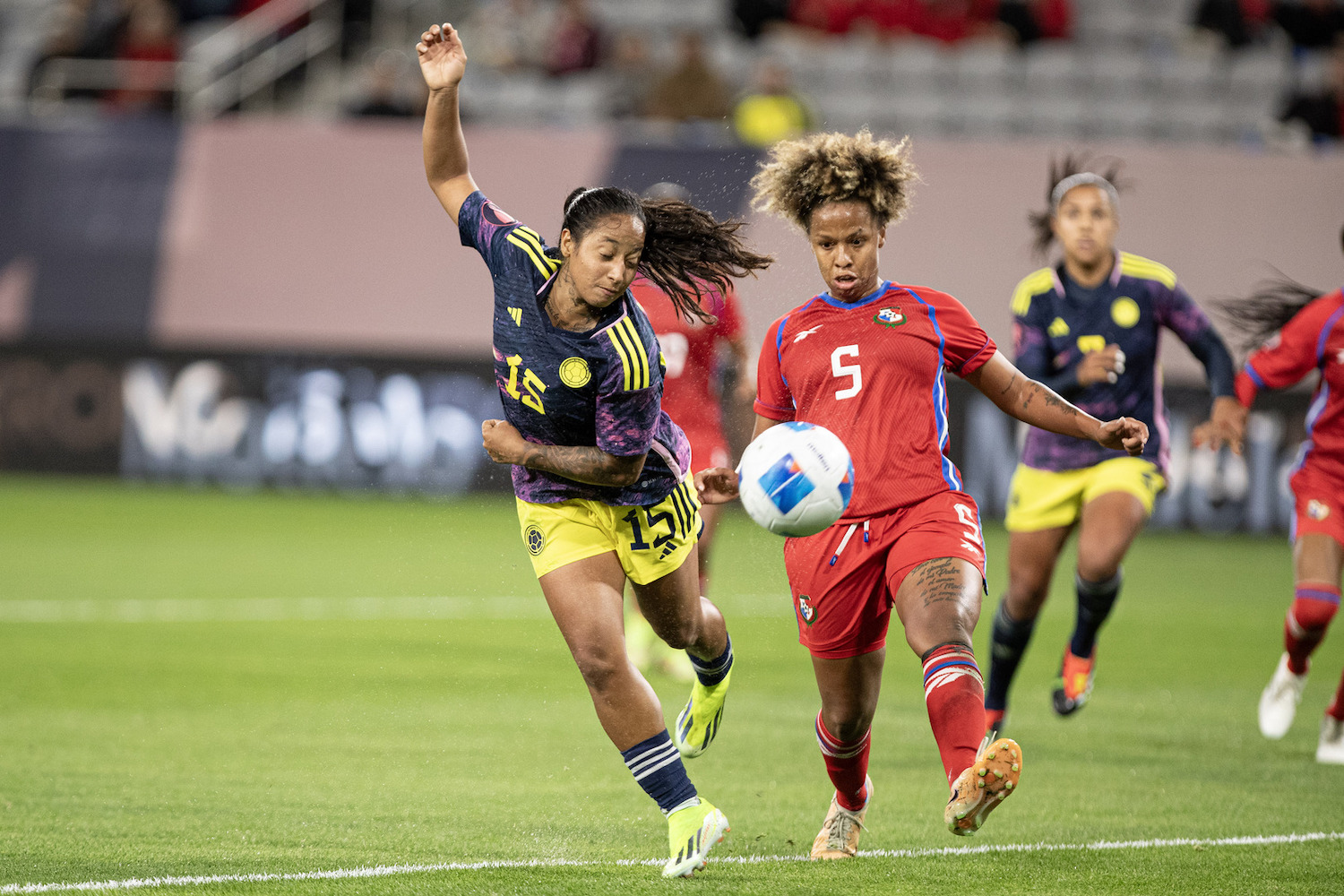Snapdragon Stadium general manager Adam Millar proved prescient before Wednesday’s group play of the inaugural W Gold Cup. “Fans can expect to see some strong competition, incredible talent, and a beautiful pitch,” he said.
Colombia vs. Panama Match Recap
In the first match between Colombia and Panama, no one was more talented than Manuela Pavi. The Colombian midfielder dominated from the start, carving up the left flank and gaining possession of the ball at will. Her opening goal in the 26th minute, off a deflected pass in front of the net, was inevitable. Her second goal eight minutes later, after a run between four defenders, was pure class.
Panama wanted to be the more physical team, trying everything within the rules to keep Colombia out of the box, but Colombia’s deft passing and superior speed opened up all the space they needed. Contrasted against that “beautiful pitch,” which might be the greenest lawn in the Western Hemisphere, Colombia’s navy and yellow kits made the team look even more dynamic.
That iconic yellow, borrowed from their flag and representing the country’s natural wealth, is one of the most striking national colors in the world. It was a color worn by several fans, who were treated to a decisive 6-0 victory.
“The truth is we work a lot, [and] we are a very united team,” Pavi said after the match. Hers is a hardworking, united team that could very well challenge the American squad, the tournament’s prohibitive favorite. That challenge could come in the Gold Cup final, which will also be played at Snapdragon Stadium on March 10.
Brazil vs. Puerto Rico Match Recap
Brazil and Puerto Rico faced off in the second matchup of the night, and in the first half the teams played to a draw. Brazil completed several back-heel passes and give-and-go’s, and their offense seemed intent on breaking a shots-on-goal record. But while Brazil was busy with nifty plays, the Puerto Rico defense was busy recruiting the goal posts as extra defenders. They also had the 6’0” Sydney Martinez in net, who seemed to get a hand on every shot.
In the end, Puerto Rico could only withstand Brazil’s relentless attack and overall quality for so long. After a low cross from the right corner in the 81st minute, forward Gabi Nunes slid from Puerto Rico’s six-yard line and poked the ball to the back of the net. Brazil’s 1-0 win sets up a huge Brazil-Colombia match on Saturday.

Will Soccer Fans Show Up to Snapdragon Stadium?
While these games align with Snapdragon Stadium’s ambitions, San Diegans may not fully understand just how big this tournament is for international soccer and the city.
“Since opening, we’ve worked diligently to showcase the venue both nationally and internationally in order to highlight how ideal this stadium and [the San Diego] market is for soccer,” Millar said.
The W Gold Cup at Snapdragon Stadium follows the NWSL final, a men’s Gold Cup semifinal, and several international friendlies, including a game between the Premier League’s Manchester United and Ryan Reynolds’ Wrexham A.F.C.
But while the reaction in San Diego to the W Gold Cup has been “phenomenal,” according to Millar, it was hard not to notice how sparse the crowd was for Wednesday’s doubleheader, even for the primetime game featuring a traditional power in Brazil.
Half the stadium was closed off, the other half had far more empty seats than people. At one point, I was able to hear a conversation among fans four sections away. It was a far cry from the San Diego Wave smashing attendance records, and traffic was so bad going to the sold-out United-Wrexham match I got to my seat three minutes before halftime.
Part of the challenge may be that casual American sports fans are not familiar with the Gold Cup.
Around the world, soccer’s governing bodies stage tournaments for the national teams in their jurisdiction. The “Euro,” staged by UEFA, European soccer’s governing body, is the best known and most prestigious, but there’s also the Africa Cup of Nations, the Asian Cup, and so on. These cup competitions are so important, players will leave their high-paid club teams in the middle of the season to compete in them.
The Gold Cup, staged by Concacaf, is the equivalent for North America, Central America, and the Caribbean. (The W Gold Cup also invited teams from South America, governed by CONMEBOL—there will be a quiz on these acronyms at the end of this piece.) On the men’s side, the U.S. and Mexican teams have dominated the Gold Cup in its 33-year history, and now there is finally a women’s competition.
PARTNER CONTENT
We’re used to sports in the U.S. being neatly confined to static leagues whose regular seasons transition into playoffs. We take a break, then do it all again the next year. In world soccer, there are a ton of interrelated cups, tournaments, league matches, and exhibitions, all with different timelines, and the Gold Cup is like a mini-World Cup. It means a lot to the players, and there’s no better example than the raucous 2011 men’s Gold Cup final between the U.S. and Mexico at the Rose Bowl in front of 93,000 people.
Here in San Diego, the folks behind Snapdragon Stadium, as well the Wave and MLS’s San Diego F.C., are investing a lot in soccer, generally, and in international women’s soccer, specifically. After the Chargers left this so-called small market, what they’re really investing in is San Diego being a sports town. But perhaps another word for investment in this case is gamble.




















